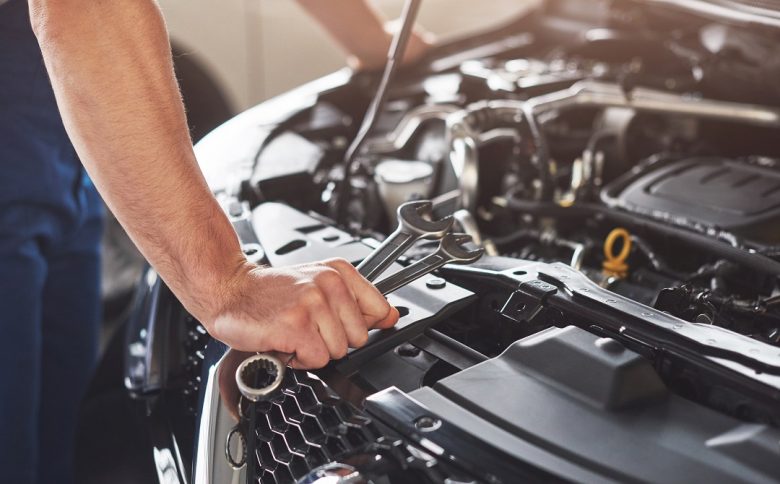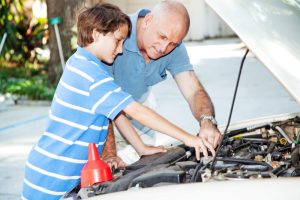Proper care of your car’s engine is important to ensure that it lasts as long as possible and performs optimally. A well-maintained engine can save you expensive repairs, save you money on gas and make driving more enjoyable. Here are some of the best engine maintenance tips to keep your car running smoothly and reliably.
1. Change the Engine Oil Regularly:
Changing your engine oil regularly is one of the most important parts of keeping your engine in good condition. Motor oil prevents the moving parts of your engine from rubbing against each other and keeps your engine from overheating. Over time, oil breaks down and becomes clogged with dirt, making it no longer usable. Most manufacturers say you should change your oil every 3,000 to 5,000 miles, but you should always consult your owner’s manual to make sure you’re following the correct steps for your car.
2. Use the Right Oil:
Using the right motor oil is very important for the health of your car. Conventional motor oil, synthetic motor oil or high mileage motor oil are the different types of motor oil required by different engines. You will find the best type of motor oil for your car in the owner’s manual. If you use the wrong oil, your engine may not run properly, wear out faster and not get proper lubrication.
3. Install a New Oil Filter:
In addition to frequent oil changes, the oil filter also needs to be replaced. The oil filter works by trapping dirt and other particles, preventing them from entering the engine. When an oil filter becomes clogged, the oil flow slows down, which can damage the engine. Every time you change the oil, you should also replace the oil filter. This keeps your engine clean and well lubricated.
4. Replace the Air Filter and Check It:
The air filter prevents dust, dirt and other small particles from entering the engine. If the air filter is dirty or clogged, air cannot flow through the engine, causing the engine to run less efficiently and use more gasoline. Be sure to check and replace the air filter regularly according to the vehicle manufacturer’s requirements. You should replace your air filter every 15,000 to 30,000 miles.
5. Check and Replace the Spark Plug:
The spark plug ignites the mixture of fuel and air in the engine cylinder. Misfires, rough driving and poor gas mileage can all be caused by a worn or dirty spark plug. Check the spark plug regularly and replace it if necessary. Most spark plugs need to be replaced every 30,000 to 100,000 miles, depending on the type and driving style.
6. Make Sure There is Enough Coolant:
Coolant helps prevent your engine from overheating and keeps it running smoothly. Without enough water in the engine, the engine can overheat and seriously damage itself. Check the coolant level regularly and add more coolant if necessary. It is also important to flush and change the coolant as often as your vehicle’s manufacturer recommends, usually every 30,000 to 50,000 miles.
7. Keep the Cooling System in Good Condition:
It is important to maintain the entire cooling system and check the coolant level. This means checking your water pump, radiator and pipes for cracks, leaks and wear. If your cooling system isn’t working properly, your engine can overheat and become damaged. By having your cooling system regularly maintained, you can keep your engine running easily and avoid expensive repairs.
8. Make Sure the Engine is Clean:
If you keep your engine clean, dirt and other things won’t damage it. Clean the engine compartment regularly with a soft brush and a mild detergent. Be careful not to expose delicate electrical parts to water. A clean engine not only looks better, it also performs better.
9. Check Hoses and Belts:
V-belts and pipes are important for your engine and other systems to function properly. Over time, they can wear or crack, causing breakage. Regularly inspect the timing belt, serpentine belt and various lines for signs of wear. If any problems are found, they should be replaced immediately. Seat belts generally need to be replaced every 60,000 to 100,000 miles.
10. Watch Out for Beacons:
Nowadays, cars have many warning lights that can alert you if something is wrong with your engine. Do not drive with the check engine light or other warning light on. You can use an OBD-II reader to read the fault code, or take your car to a professional mechanic who can diagnose and fix the problem. By solving problems early, you can prevent them from getting worse later.
11. Check the Fuel System Regularly:
Fuel filters, fuel pumps and fuel injectors are all important components in the fuel system that deliver fuel to the engine. If the fuel filter becomes clogged or the fuel injectors stop working, the engine will run less efficiently and use more gasoline. As often as your vehicle’s manufacturer advises, check and replace your fuel filter. You may also need to use a fuel system cleaner to keep your injectors clean and functioning properly.
12. Use High Quality Fuel:
Using high-quality fuel can have a big impact on the performance and longevity of your car. Low-quality fuel may contain impurities that can clog the fuel system and make it less efficient. If you can, only get your gas from gas stations you know and trust. You may also want to use fuel additives to clean your fuel system and make your car run better.
13. Allow the Engine to Warm Up:
Warming up your engine before riding can keep it in better condition, especially when it’s cold outside. Before driving, run the engine for a minute or two to allow the oil to circulate and lubricate the moving parts. If you accelerate the engine immediately after starting, there is a risk that the engine will be damaged because the oil has not yet completely drained.
14. Don’t Take Short Trips:
Because they don’t give your engine enough time to reach the right temperature, short trips can be difficult. Engine oil is thicker and does not work well when the engine is cold. To warm up your engine and get it running properly, try combining a few short strokes with longer strokes.
15. Be a Good Driver:
When you drive aggressively, such as accelerating, braking hard, or accelerating quickly, this can put extra strain on your engine. Keep your speed steady and drive smoothly to avoid engine wear. Safe and responsible driving not only extends the life of your engine, it also saves money on gas and keeps you safe.
Conclusion:
Regular engine maintenance is important to ensure that your car lasts a long time, drives well and is reliable. With these top engine maintenance tips, you can keep your engine in good condition and avoid expensive repair costs. Remember, keeping your car in good condition not only saves you money, but also makes driving safer and more enjoyable. Take the time to perform these regular maintenance tasks on your engine so that it continues to perform excellently for years to come.
FAQs:
1. How often should I change my car’s engine oil?
It is best to consult your owner’s manual for specific instructions for your vehicle. Most manufacturers say to change the oil every 3,000 to 5,000 miles. Oil change rates can also be affected by factors such as the type of oil used and the way the car is driven.
2. What kind of oil should I put in my car engine?
Which motor oil you should use depends on what kind of car you have. Consult your owner’s manual to find out which oil is best for your car. This can be standard oil, synthetic oil or high mileage oil. Using the right type of motor oil will keep your engine lubricated and running optimally.
3. How do I know when to buy a new air filter for my car?
You should normally replace your air filters every 25,000 to 30,000 miles, but you should always check them for signs of dirt and blockages. If the air filter looks dirty or clogged, or if you notice that the engine is not running properly or not getting good gas mileage, it is time to replace the air filter.
4. How do I know if my spark plug needs to be replaced?
Misfires, rough driving, and poor gas mileage can all be caused by a worn or dirty spark plug. If this happens, it may be time to replace the spark plug with a new one. Most spark plugs need to be replaced every 30,000 to 100,000 miles, depending on the type and driving style.
5. Why is it important to keep your engine’s cooling system in good condition?
To prevent the engine from burning (which can cause a lot of damage), the cooling system must be kept in good condition. Check the coolant level regularly and inspect the radiator, pipes, and water pump for leaks or wear. To ensure proper functioning of your cooling system, flush and replace the coolant at the manufacturer’s recommended frequency, typically every 50,000 to 80,000 miles.



